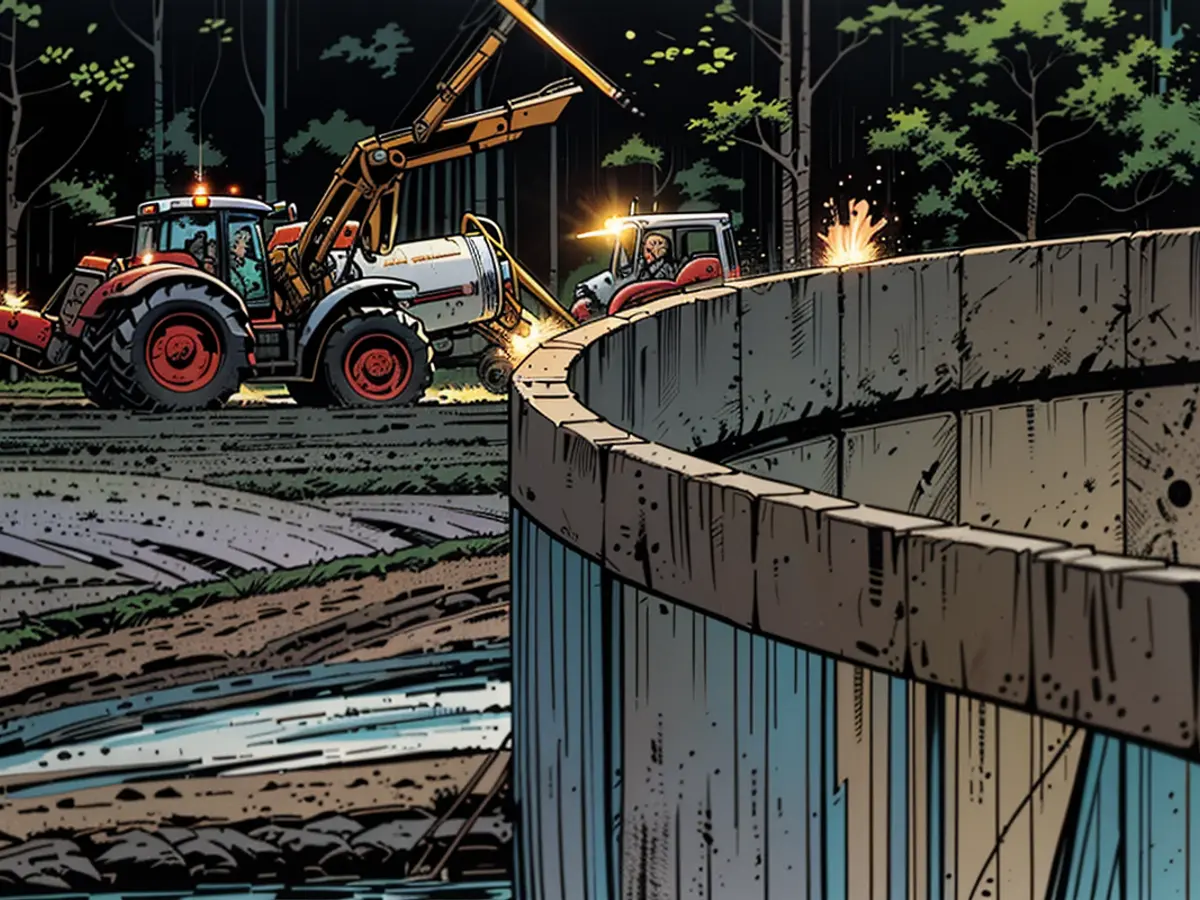Nature or Ecology is the subject being discussed. - Managing Precipitation on Agricultural Land
After the intense rainfall in southern Germany, Mecklenburg-Vorpommern's Agriculture Minister, Till Backhaus (SPD), urged agricultural businesses in the region to reassess their rainwater management practices. He stated on Wednesday in Schwerin that it is essential to prevent harmful substances from contaminating the water during heavy rain. Appropriately draining and dealing with rainwater in rural areas, especially on agricultural lands, is crucial for safeguarding groundwater and surface water.
If manure, slurry, silage effluent, or biogas plant wastes are not collected and stored correctly, they could be swept into streams, rivers, and lakes during heavy rain. This could culminate in significant problems. "The decomposition of organic materials results in oxygen depletion, which, in conjunction with other factors like high temperatures, can produce extremely toxic substances," clarified Backhaus. Released nutrients from plants could also trigger a massive algae bloom. Over time, the quality of groundwater could deteriorate, and the agriculture sector is already presumed to be the major contributor to the high nitrate levels observed in many locations.
"A prerequisite for sustainable rainwater management on farms is minimizing rainwater contamination at the source," emphasized Backhaus. This necessitates clean field management, frequent cleaning of premises, and the separate gathering and utilization of highly polluted streams. Prevention is superior to cure, and the guide provides all the necessary information and solutions. However, it does not introduce any new legal regulations.
Read also:
- In response to the heavy rainfall affecting various parts of Germany, the government in Mecklenburg-Western Pomerania has emphasized the importance of implementing effective rainwater management strategies in agriculture to prevent contamination of water sources.
- Till Backhaus, the Agriculture Minister of Mecklenburg-Western Pomerania and a member of the SPD party, urged agricultural businesses to reassess their water management practices, emphasizing the need to prevent harmful substances from reaching water during heavy rain.
- Backhaus highlighted that adequate rainwater drainage and management in rural areas, particularly on agricultural lands, is essential to safeguard groundwater and surface water, protecting both the environment and agriculture in Mecklenburg-Western Pomerania.
- The improper storage of manure, slurry, silage effluent, or biogas plant wastes could lead to contamination of water sources during heavy rainfall, potentially causing significant environmental and health issues.
- To promote sustainable rainwater management on farms, Backhaus emphasized the importance of minimizing rainwater contamination at the source through clean field management, frequent premise cleaning, and the separate gathering and utilization of highly polluted streams.
- The government in Mecklenburg-Western Pomerania has not introduced any new legal regulations to enforce sustainable rainwater management practices in agriculture, instead relying on education and guidance to encourage farmers to adopt more environmentally friendly water management strategies.








